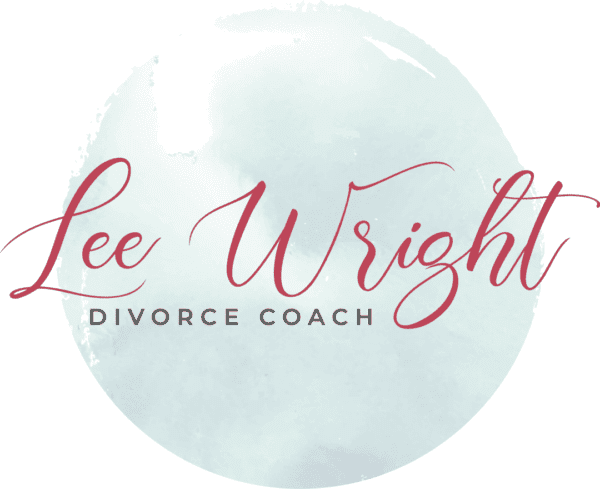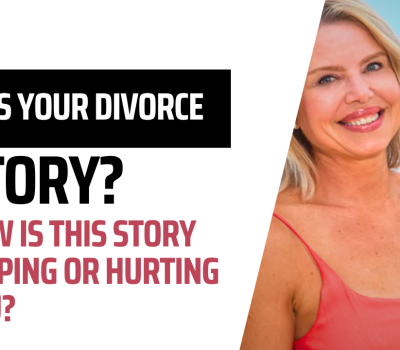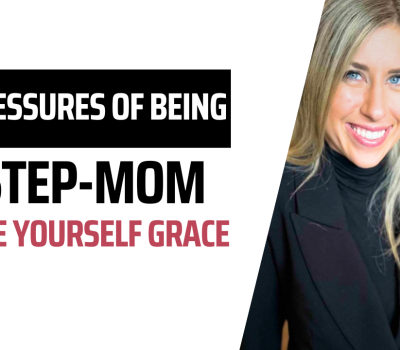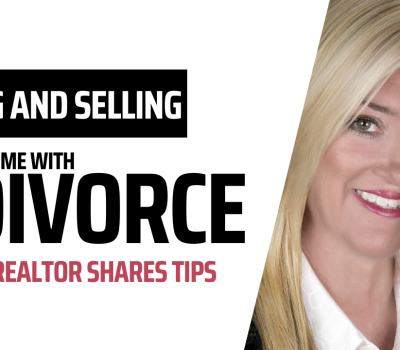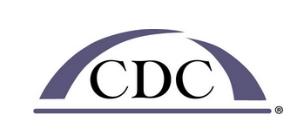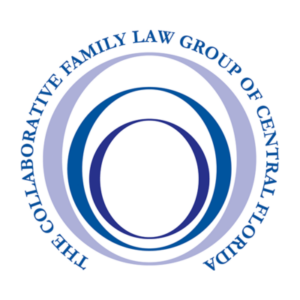Hey, everybody, this is Lee. I am here with Season’s Ebb and Flow channel. And today I’m going to be interviewing Crockett Bohannan, and he is a CDF, A which is a certified divorce financial analyst. And I’m going to ask him to explain to us what that is and why people seeking a divorce might want to have a professional like him help them. So, Crockett, it’s all yours.
Okay, Well, thank you. First, thank you for having me on today. I greatly appreciate the time. And I am glad that we have have a few minutes to talk. Yes. So, you know, when you’re going through the process of divorce, you know, it’s a legal process and driven by the statutes of the state and the legal process that we have. But all those decisions you’re going to have to make are based on financial information. So where we come in is we sit down with individuals and arm them with the financial information to make the best decision they have. So what’s important is, you know, you’re going to walk out hopefully of mediation with some sort of resolution and whether it’s a good deal or a bad deal, what’s important is that you understand what the financial implications of that deal look like, not only the day you walk out of the room, but two years down the road, five years down the road, ten years down the road. So we spend a lot of time with the people we work with to make sure that they understand the financial implications of the decisions they have to make, as well as understanding how the assets are dealt with during the process. Because not all assets are created equal and it’s important that they understand that as well. You know, the story I like to tell is, you know, I went through the process myself in 2008, and I’ve been in the financial services industry for 20 years, and there was so much that I didn’t know when I went through the process myself in oh eight, being in the industry, I felt that there’s definitely in an area to help people with this process. So that’s kind of why we started the divorce planning business.Gotcha. Yeah, it makes so much sense because I think a lot of people, some people sometimes in the marriage have no don’t deal with the finances and so have no idea what’s going on financially with their assets and debt. And then the people who are very hands on with that. Divorce is like a whole other, you know, galaxy of information that you need to think about with tax repercussions and things like that. Do you do you usually get involved? Like if lawyers are involved, do you sometimes sit down altogether or is that usually just you with your clients specifically?
Well, it depends on what the engagement how the clients want to engage us. Yeah, absolutely. We will. We will work with the attorneys. We go to mediation. We’ve been deposed. We’ve been asked to be expert witnesses in in trial situations. But a great example would be I had a couple call me today who wanted to divorce amicably, and they were they wanted to have an equitable distribution discussion. And what I found out after speaking with them is they weren’t sure how to divide the assets because one of the parties hadn’t come up with a budget yet and she wasn’t sure what she needed. So it can it can. So, you know, at this point we’re just going to work with her to to help her develop her post-divorce budget, you know, and then then look at the equitable situation so we can be engaged at any any step in the process, at the beginning, at the end, starting the middle. But yeah, we we have we have been engaged in all facets of working through the process because there’s always a question that comes up that somebody has and, you know, maybe there’s not a financial person there. We, you know, we’ve done collaborative situations as well. So if we need to act as a neutral, we’ve done that quite a bit as well.
Okay. And how for you with clients, is it easier when they’re in a collaborative situation or for you? It just really depends on the situation because everybody’s so unique.
Yeah, it depends. And you know, I’m sure you had the same conversation when you’re working with individuals, everyone thinks that their situation is the only time it’s never happened. And although similar people do share similar circumstances, the situation is always different. It’s never the same. Yeah. So yes, exactly. So, you know, and that’s why I tell people to be very. Careful when they listen to their friends and family about the process when they went through it, because it’s probably not going to be the same way that they’re going to go through it. So listen to those people. You use them for support, but every situation is different. And to understand that going through, Yes, that’s why I have to be very careful with Google. Right. Because in that situation may not fit your particular your. So it needs to be your your goals, your priorities need to be focused specifically on your on your situation.
Right? Absolutely. Yeah. I think something that really helped me when I was going getting ready for mediation was I did a lot of like really long walks and just thought about like my future and like, how many years did I really think that it would take me to get fully on my feet and, you know, just kind of like really big picture of, you know. Realistically, I’m thinking what was fair and I just feel like doing some soul searching and then bringing it practical down to earth is really helpful. But but I think for a lot of people, sitting down with a professional is more helpful than doing it on your own. Because, yeah, I bring a lot of friends and family and stuff for sure, but I think not everybody has so many people to refer to and ask questions. And that’s where having someone like you who has so much knowledge and expertise makes such a difference.
And it’s the same with you and the way you handle, you know, the process that you go through with individuals. Every you know, I’d like to think I could do this by myself. And people will come to us and say, Well, we’re not going to hire attorneys. That’s too much money. And I was asking them about that because I understand it’s expensive, but you have one time to get this right. And it’s the same thing when, you know you touched on it. You know, you have to be very careful because every text, every email, every phone call, every conversation can resolve or can revolve around the process. And that can really kind of spiral you out of control. So that’s where, you know, you know, that’s where you come in to help the individuals kind of gain some focus. And then they bring that focused up to my office and we can really drill down on their priorities because that’s what it’s all about.
Yeah, it’s so true. It like it’s unfortunate with divorce, if like something small transpires that is hurtful or, you know, there’s like a trigger and a snowball and it’s, you know, railroad the whole process. So that awareness of being very, very treading lightly with everything is is so important. And yeah, it’s definitely something I’m working with clients on regularly. But what are some of the biggest challenges or hurdles you see people have when they come, when they’re in the situation that they need somebody to help them with this?
Sure. From a financial perspective, there’s there’s really two things. And we you know, we kind of emphasizes throughout our process, as we call it, the first crucial step, and that’s really understanding what your situation is. So it’s a matter of getting all the information so, you know, get, you know, start that process early, get your bank accounts, get your mortgage, get your tax returns. You know, I always tell people that whoever has the most information will probably walk away with the best deal. And a lot of times there are some great attorneys out there and and a lot of times we will we we’ve seen clients use them for that financial support because they’ve been through it so many times. But again, every situation is specific. So I think the biggest obstacle everyone and probably you see this is starting right starting so yeah, just.
Overwhelming paperwork that if you have a lawyer they’re like, here’s the list of what we need. And you’re like, Oh my God, I don’t even want to look at that.
Right. So, you know, you know, we we spend a lot of time upfront with individuals, as I’m sure you do, working through that. We have a process. So, you know, the first thing we do is we sit down with individuals and we. What are your priorities? You know, what are your priorities? What are your priorities from a financial standpoint? What are your priorities for your kids? What is your priorities from an equitable distribution standpoint? And that’s really where the conversation starts to revolve. So every time you bring an idea or a new thing pops up, you know, we’re like, Well, that wasn’t what you said your priorities were. So have we have our have our priorities changed from a financial standpoint? Do you know now you’re saying you want the house before you didn’t want the house. So do we need to rearrange our priorities so if you can keep them focused on those big picture priorities and we write them down just like you know, that that makes them real. And so we can always bring them back to that. And and where we found that’s very helpful is usually in mediation, because that’s where the curveballs will come. Yeah. And we’re like, well, that was is this a priority for you? Was this a priority for you? And if it is, then we need to spend some time on it. So I think the biggest challenge is, is the is getting started with the overwhelming amount. You know, you’ve got to do your financial affidavit, your mandatory document disclosure, your parenting plan. And it’s it can be extremely overwhelming. And so let’s so that’s, you know, that first crucial step. We spend a lot of time upfront trying to make sure that that’s done correctly, because if it is, then there should be an A flow to the rest of the process. And once you’ve educated yourself, then you’re armed with information and that’s really going to help you.
Yeah, I do 100% agree that the person who goes into mediation with the most. Information and mentally prepared with doing all the like real deep thinking and preparing mentally, but also just about numbers. At least in my situation, I did my homework and I had a lawyer, but I kind of knew and my ex-husband had not done much research. I think just his lawyer. Kind of gave him like false ideas of what to expect. And I feel like that didn’t set him up well for mediation. And so I I’ve really worked with my clients on the information gathering and the mental preparation. I think that’s just so crucial.
Yeah. You know, what will do is, you know, will be in mediation and we’ll have drafted several different scenarios for for the for the clients. And, you know, I always tell them that the they’re going to look over at their lawyer and say, should I take this deal? I’m like, the attorney will never tell you to take a deal or not take a deal. That’s kind of up to you. And if you ask me the same question, my response is going to be, well, we worked through several different scenarios for you. Does this resolution fit any of those scenarios? And if the answer is yes, then you’ve answered your own question. If the answer is no, then you know, that probably isn’t a financial alternative for you. And so you can work through the process of getting that done. But from a mental standpoint, you’re right. I you know, we’ve been in mediations that have been. You know, ten, 11 hours long. And if you’re not ready for that going in, then that can really affect your decision making process.
Yeah, absolutely. And then there’s like the emotional triggers, like, for example, you brought up the home or that family house and sometimes the emotional attachment to their home doesn’t equal their priorities or the the financial picture that makes most sense. How do you help them through that?
Well, again, it’s it’s you know, when we sit down, the first thing we do when we sit down with someone is we have a priority worksheet and there’s four different subheadings. And it’s it’s it’s a it’s a dynamic document. Your priorities can change over the course, but you should have a pretty good idea prior to any negotiating, whether it’s mediation or outside of mediation, what your priorities are. So if you get so not if you get the curveball thrown at you, but when that curveball comes, you have something to go back on and say, I have these are my priorities. Because, you know, you see people and I’m sure you see it, they’re going to argue over the glasses. You know who gets the kitchen glasses? Well, you know what? That’s not really a priority. So we’re not going to spend our time, energy and effort focusing on that. Let’s move. Let’s make it one. I mean, so, you know, and some attorneys will do that. And it’s funny, the ones I work with now, we’ve shared our priority worksheet with, and they’re using it as well because it really helps bring the focus back to the situation at hand. So it removes some of that emotion that you’ve got in the process and the priorities can change you now, your priorities, the House. So your priority is, you know, with the children to spend X amount of time. So we’ve always got a document, a living document that we can focus on to help with priorities.
Right? Right. And then so you work with some people post-divorce as well when it comes to like budgeting and how does what do you work with them on from that perspective?
Yeah, so I kind of feel like we’re in it. We’re in it. We have an interesting dynamic here. So, you know, we have there’s two operations that we have. We have in a divorce planning and we have foundation financial partners. So we have it’s over with. My partner about she’s been in the business for 20 years. I’m going on 17 years now. So we can we can take off our divorce tag and put on our financial planning hat at whatever point during the process we need to. So, you know, once we get you through mediation, then the next part of the next step in the process may be a budgeting or an asset transfer or a set up an IRA or figure out how we’re going to get the Quadro down the move. The 401k So we have an extensive knowledge base in doing that for the past 20 years. So it really we’re not handing those clients off saying, good luck with your marital settlement agreement. Now go get it completed, because now that’s when the work really starts to make sure that you’re financially set up. So.
We have we have the experience and we have the processes in place to be able to to help individuals. That doesn’t have to be with us. But we can give guidance on those situations as well because we’ve worked through them in the past 20 years.
] And and I have to tell you, it’s very it’s very rewarding because whereas the lawyers are transactional, they signed the MSA, you never have a relationship with them Again. Some of the people we started with in the divorce process and they were miserable and it was terrible. Now we get to see them on the other side. They’ve been clients of ours for ten years and they’re living their best lives, so it’s awesome.
] Yeah, that is pretty cool to actually be able to see the transition of them moving through the process of divorce, which is can be hell. And then probably seeing them five, ten years later and their kids are going off to school. Yes, they’re. And financially your life is kind of a mess for the first year. So at least after divorce, because it’s a huge financial hit, having to split one household income into two. And so that’s kind of a very challenging time. But once you get back on your feet and yeah, it’s kind of neat to see that your life because that’s not the end of the world, which it feels like it is when you’re going through it.
Right? And that’s where you in and you get to help them and you get to see that that evolution and it’s it’s that’s that’s still rewarding It’s it’s it’s the best part of our job.
So yeah I totally agree it’s like for one giving them the reminder that there’s light at the end of the tunnel and then having them start to see that light and actually start to light up themselves over time. It’s it is it’s a very rewarding process and. Yeah, I agree. So what would you say to people who are in a financial situation where they don’t have a lot of money to work with? Do you recommend. Like, do you have like where you work with people maybe just for like an hour to just help them give them? Or is it always just a a relationship long term situation?
You know, I’ll tell you, it’s going to depend on the individual, but there isn’t a person who we’ve turned away at. I’ll have a conversation with just about anybody, you know, And I always think back to when my mom went through the process and, you know, how how devastating it was to her and how people helped her along the way. So, you know, that’s part of what Jess and I do is we’ll have a conversation with with anybody you know, for will donate our time, I’ll say, and at least give them some guidance. You know, we do have we do have an you know, we can work with people on an hourly basis. We give people on a flat fee basis depending on the different situation. But yeah, well, I mean, anybody who needs some help and guidance more than happy to spend a half an hour or 45 more on a phone call or a Zoom or something like that, just to give them some guidance. It you know, it it makes me feel better. And and and it’s just kind of, I guess, our way of of helping out. There’s so much there’s so much information out there and not necessarily bad information that sometimes they just need a little bit of guidance. Unless. Absolutely. We’re open to doing that.
And I tell people, I don’t I don’t believe in luck, but I do believe in karma.
So absolute. I totally agree. Yeah. You got to stack those karma cards.
So I don’t I don’t believe in luck, but I do believe in karma. So. Absolutely. You know, there’s. And, you know. Hopefully if we help them out, they’ll they’ll tell their friends or whatever. And the workers that were that were good folks and go from there.
absolutely. Are there any. Things that you’ve seen, like a kind of recurring theme of. What you notice in clients across the board or is it varies still everything case by case. As far as.
It’s different. I will tell you that most of the people when we have our initial consult, they. They don’t understand the process. They don’t understand what’s going to be required of them from a from a from a legal and financial standpoint just to take that first step. So, you know, the couple I was speaking with this morning, I’m like, what county do you live? And I want to make sure I’m talking about the right laws in the right district. And they’re like, well, we live in orange, but we’re going to file in Seminole. I’m like, you can’t you can’t do that. You file all your residents. So I think what what I think the common thread is, is whether it’s a $20 million divorce or a $20,000 divorce is they just don’t know. I mean, there’s not a there’s not a resource to go to to find out this information other than the Internet. And then again, there’s so much information out there. So I think getting guidance on your specific situation, whether it be emotional, financial or legal, I think is really important. And I go back to be very careful listening to your friends in your family who’ve done this before because your situation is different. So, yeah, I think, again, I think taking that first step and and reaching out for help, whether it’s through a service like yours or a service like ours, I think is really, really big. And I think that alarms people with information. And again, I think that the theme is re-occur. And I think that’s the biggest obstacle people have is they don’t understand and it’s not their job to understand them.
Yeah, and it’s such a big. For so many years. Really, it sets you up for the next half of or the next chapter. So the decisions have a lot of weight to them. What about situations where people want to mediate but not use attorneys, but they might hire a mediator in that situation? If they bring you on board, or are you a neutral party helping both parties or how?
Yeah, great question. So we’ve actually I’m not a mediator, not certified, not to be made here, but we we have. Individually sat down with people we create. We generate what we call a memo of understanding. If they want me to be that person who helps them through this, through the process, we can do that. Absolutely will be a neutral for both parties. No mediator, no lawyers, no anything. So we’ve we’ve done that. I’ve been. I’ve been engaged as an advocate for one party or the other when there’s just a mediator. But I’ve also been engaged as a neutral. So again, it’s it’s it depends on on the scenario that the individuals are looking for. You know, we’ve. We generated marital settlement agreements here in the office before we’ve had I’ll call it mediation, but it’s not mediation because legally it’s I’m not a mediator, but we’ve done that as well as just worked with a mediator as well as done the collaborative as well as. All the way through. So that’s the nice thing where we’re super flexible about making sure that we do what’s in the best interest of the client and the people together.
I think that’s a there’s a lot of people who don’t, if they are amicable and they don’t want to involve lawyers, but having a professional, help them think through and write up the MSA and then maybe spend, you know, the hourly rate of an attorney to, you know, read through it and rubber stamp it before they go and.
] File is always encouraged. I always encourage them to go hire an attorney, always encourage them that to to have an attorney review it and put their in and give it their approval. Absolutely. And understand that each party has to get their own attorney to do that. But that’s okay. That’s money well spent.
But it. we can help with that process. Absolutely. All the way through, because really 90% of the decisions you’re making are financially based. Right. And so, you know, with with the resources that we have and the. The institutional knowledge that we have over the last 15 to 20 years. We were pretty good at figuring that out.
] Yeah. Yeah. I think the financial discussions are hard, but they’re, uh, they’re nothing like that because the challenge is if there are differences in custody issues. So.
Yeah, I won’t, I won’t mediate with if there’s kids, I’m not, I that’s not something that I, that I would even get into this is it’s strictly if there’s just, just the two No kids. Yeah yeah. Got it because that’s that’s a whole another level of complexity that, that you’ve got to have a specific set of resources to be able to handle those issues.
So yeah. Yeah. And. How how do people find you if they are looking for information?
I mean, just like every other company. Great use for resources. Our website, we look we have a host of information on there and several videos that you can look at. You can actually schedule a free consultation via right through our website. Or if you have a question, you can there’s a contact contact information, call the office. You know, we’re you know, look us up on Google but you know Orlando divorce planning dot com great website a lot of good information there that will kind of help people figure out what we do and maybe what the action is that we can help with along the way. And we have a page specifically for our attorneys. We have a page specifically for mediators because we we do a lot of. Combined work with the client. It’s yeah. So it’s important that they understand, you know, the resources that we’re bringing as well. And from an attorney standpoint, really a lab liability issue, you know, attorney’s not going to give you financial information for liability reasons, but you know, that’s kind of where we get brought into to bring that expertise to the table.
Right. And one other question. So do you the knowledge to help people think through the decisions and the tax implications for those?
Again, not an accountant. I’m not an accountant. We have an accountant on our team here. She’s been an account for 20 years. So any of those issues that need to be brought forward, we have the resources to be able to discuss them. But any time you’re moving fundamentally moving an asset, there’s a taxable implication to it. So just making sure that you understand that. Yes, absolutely. We have we again, that’s something we’ve been accustomed to over the last 20 or so, you know, on our on our on that side of the business, you know, there’s certain credentials and certain CLE that we have to have on the divorce side. So we’re consistently getting updated there. The brand new Secure act just came out, so we’re learning all about that in the tax implications that that’s going to play when it comes down to making this divorce decision. So yeah, absolutely. You know, we we we can help with those issues as well. Absolutely.
And that’s one of the things that I tell people. I mean, there are there are a few other individuals out there who are doing what we’re doing, but we team, so we take a team, approach everything. So you’ve got myself, my partner Jessica, who’s a CFA Daly, is our accountant. She is a she’s a CPA and a CPA. So we have to do business valuations. So we’ve tried to cover all the bases with our team and when you engage us, you’re not just engaging one of us, you’re engaging all three of us. So the resources that we have that we’re able to bring to bear usually are pretty significant when it comes to any size case.
Okay, that’s amazing. Yeah. What is because I’m sure some people like how do you even become certified to be a CDF? Like what? Because I think unless you’re going through a divorce, you’ve never even heard that term.
I mean it’s an accredited designation through the into the ADFA Institute for Divorce Financial Analyst. It’s about a year program. You’ve got to have prior financial certifications to be able to step into the role and then it’s a you know, it’s a it’s about takes about a year to get through the program, several modules. And I think when I took it, there were four proctored exams. Do you have to do case studies? We have 60 hours of CLE we’ve got to complete every year. So it’s it’s there’s a process and again, it’s accredited process and you have to have prior credentials to be able to step into the role before that will even allow you into the program. So I think it’s a new you know, it’s I’m going to say it’s fairly new. It’s been around for a while. But I think with the evolution of the way divorces are going through in our country, I think, man, I wish I mean, I’m in the business and when I got divorced in oh eight, I would have hired a CDF if I’d have known there was one out because because I knew the financial side. But how that brought to bear on the legal side and what my future was going to look like. You know, my attorney looks at me and says, you know, how much you know, do you want to pay in alimony? I’m like, Oh my gosh, I don’t I want to pay. I don’t want to pay any I don’t know how much can I afford to pay?
So, you know, now there’s a we you know, we can help individuals with those hard questions. So you can go to the IDF’s website, they talk all about their name. We actually link out to it from our website as well. Okay. So but yeah, they it’s an educational process and but there’s years of service and there’s all kinds of obstacles you have to get through to get to earn that designation.
Right. And do you ever have clients come to you after the divorce who want you to see if there’s any way to reopen the divorce and or redo the whole process because they realize they made a mistake or. Yeah.
Yeah. Normally again, so what happens normally that we see when that’s the case is the MSSA is just written very bland. So their DNA, the marital settlement agreement will be open ended and up for discussion. And from a financial standpoint, I don’t think that that’s what you want to happen. So then there needs to be clarification and where you were. We understand what the language needs to be in the MSA. So sometimes they’ll come back to us and they’ll say, well, you know, you you didn’t mention you mentioned it overarching, but it’s really important to make sure that the details are in there. So at some point in the future, if anything were to happen. You know, it’s it’s it’s going to be difficult and there’ll it will cost you. But it in the short term, it may be worth it in the long term to have the most, you know, equitable, equitable distribution that once you’re once you’ve signed off, it’s that’s locked, locked and done. So, you know, if I always encourage everyone, you know, this is why it’s so important to engage engage somebody in the process at some point before you sign that thing, because you’re locking yourself in, you know, and you want to make the languages important. You know, people will bring a message to us and have us try to. Process. Whatever equitable distribution instructions are in there and we just can’t because the proper language, the proper language isn’t in the MSA. Wow.
Oh, man, that’s that. Yeah. That would not be a situation anybody wants to find themselves in.
Yeah, I’ve got one right now where they just. They just have accounts. They have like five accounts at Fidelity, and it just says the fidelity accounts are to be split like this. And I’m like, which Fidelity accounts? Because they agreed on one thing, but it’s not in the MSA. So now we’re.
Oh my goodness. Kind of work through the process, but that’s okay. We’ll get through it. Yeah. I think most if if you have two rational parties who both want an end in sight, I think the hard part is sometimes you can’t you don’t have two rational parties because everybody is so emotional or one party just has an emotional trigger that they cannot get past.
And yeah, everyone always comes to me and everyone comes to us and says. We agree everything is a mechanical, you know, we’re going to sign off on it. And I said, everyone says that. Uh huh. Until they until they look at the number and they have to sign off on it. And then and we added the attitude changes. So I just again, like I like to set, you know, upfront realistic expectations. And, and again, hopefully that makes the process a little bit easier.
Yeah. And I always remind people, it’s just it’s a few years process like the divorce itself might take a year, but then it’s another year or two. It’s like getting everything even keel again. And it’s but you get there, it’s just it’s not the most calm, relaxing place to be when things are transitioning and financially much tighter than they were before you got divorced. But it, it all comes together.
Yeah. Especially. Especially if there’s kids, you know, that’s that that’s going to be you know, that’s you have you have unique challenges that you’re going to have to overcome. So that’s where you come in to help these people, because I can’t help them. I can’t help the emotional side. So I believe in you. Lean on you for that. Yeah.
] Actually, I like something that. Then I decided to do is to have like a joint bank account that we each put money into too, that goes towards kids activities, school stuff, medical. And then we both have access to the account and can see transactions. And that’s worked really well for us. Is is that in typical system that you would recommend or are there others that you have found?
] Again, I don’t think there’s a typical way to do it. I think whatever whatever is going to work for you, I’ve seen there. There’s absolutely no way the parents are going to share any financial information that they don’t have to. And it’s unfortunate. It’s unfortunate for the children because that’s where the focus should be. But then there’s individuals, you know, like you who’ve been able to to cross that bridge and understand that the kids are the focus here. We need to make sure we’re taking care of them. Um, you know, from a strictly financial standpoint, I always worry about joint bank accounts because you open your stuff up to liability. So, I mean, if there’s another divorce, there’s a joint bank account with your name on it, potentially that could be up for equitable distribution. So because you’re an enabler, they could be split.
But the bank account, like we just use it as like we each put in a certain amount, Right? It’s a pass through Yeah, exactly. Necessarily Yes, it’s something I thought of. But that’s Steve, that’s a perfect example of something.
Unfortunately, my you know, I like to tell people, if you want me to scare you, I can I can tell you some horror story. So, you know, you’re open. You you know, that’s a joint bank account. So if somebody was to get divorced, that’s an equitable distribution. 50% of it’s up. Or if you you get in a car accident, you hit a busload of kids. That’s an attachable asset regardless of whose money’s end to end in it, because it’s got your name on it, regardless who else. So I always caution people because a lot. That’s a great question, because what we’ll see is when a female or a male gets divorced, the first thing they go do is open a bank account and put their kids on it. And I’m like, Absolutely. Under no circumstances do you ever want to do that. So. So it works for you guys. It works for you guys again. So it’s it’s it’s about understanding. Again, it’s not my job to tell you whether it’s a good process or a bad process. But here’s but here’s the implications of the decision you’re going to make.
] Yeah. Yeah. So because, you know, I heard the reason that we decided to do that is I heard people say, you know, I, I pay for the medical bills, but then I used to, like, save the receipts and try and get them to pay me back. And that to me, sounded like a horrible situation. Is that like, what are the other options for people aside, your bank account or one person pays and tries to get paid back?
Yeah, you know, you know the nice thing about, you know, it’s difficult. I’m not going in the way you guys are doing. It is the easiest way. And and 99% of the time that’s going to work. You know, the nice thing is with the evolution of technology, there are and you’ve seen this there are apps out there that you can that there’s parental sharing apps that you can upload receipts and you can keep ledgers. And it all really depends on the details. You know, here’s here’s what I tell people with their parenting plan. I’m like, it can be as specific or as general as you want it to be, right? I always tell them to make it as specific as you possibly can, because that gives you something to fall back on. Right? If something doesn’t happen, it doesn’t necessarily mean that’s how things are going to work, but you’ve got a document to go back on if somebody is not paying something, but if you don’t write it in there, then you’ve got an issue. So, you know, honestly, what we’ve seen people use are these apps, these payment sharing apps that are out there and they seem to work really well. But there are a lot of people who do just exactly what you do. They they share an account and they they you know, the kids are the focus. The kids are the focus. And they want to make sure that the kids are taken care of. So, yeah, absolutely.
It’s definitely my how I encourage people to think about this. Yeah, unfortunately sometimes that’s not the case and it can be a lot more difficult. But, you know, I, you know, again, back to priorities, you know, where do your kids land on that list? Yes, exactly. Yes. Yeah. I think a priority list to keep people focused is so crucial.
So I’m going to in on YouTube and anywhere else that we put this video, I’ll have links to your website. And are you guys on social media? Yeah, we are. We’re on. I couldn’t I don’t run that part, but I can tell you where they are on We’re on Facebook and Instagram and LinkedIn. Yeah.
Okay. So yeah, I’ll get links to all of those so that people know where to find you.Thank you very much. This is great. I think is really helpful for people who are just starting out and collecting information and knowing what different professionals there are out there because yeah, it’s an overwhelming process when you first get started.
Yeah, it is. It is. Well, again, thank you for your time. I hope you found the health on hope somebody else can and look forward to talking to you again soon.
